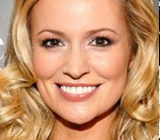
In addition to requiring strong GPA and SAT/ACT scores, to be eligible to enter the Academy a candidate must:
• Be of good moral character.
• Be at least 17 years of age and must not have passed their 25th birthday before July 1 in the year of entrance.
• Be a citizen of the United States either by birth or naturalization, except for a limited number of international midshipmen specially authorized by Congress.
• Meet the physical*, security** and character requirements necessary for appointment as Midshipman in the U.S. Naval Reserve.
• Obtain a Congressional nomination to the Academy from a Member of Congress.
• Submit a completed application; and
• Qualify scholastically.
Medical/Physical Clearance - Candidates are required to pass a DoDMERB (Department of Defense Medical Examination Review Board) physical, and take the Candidate Fitness Assessment (CFA) to asses physical fitness.
Security Clearance - In order to receive a commission at graduation as an officer in the U.S. Armed Forces, candidates are required to complete a security clearance upon enrollment at the Academy.
Organization
The Academy operates on an $85 million annual budget funded by the US Department of Transportation and is administered by the U.S. Maritime Administration (“MARAD”)
The entire student body is referred to as the Regiment of Midshipmen. The Regiment is subdivided into two battalions and five companies: First, Second, Third, Fourth, and Band, with First and Second Companies making up First Battalion and Third and Fourth Companies making up Second Battalion. Company assignment is random, although candidates who have experience playing a musical instrument are offered the privilege of joining Band Company.
Department of Public Safety
The United States Merchant Marine Academy Department of Public Safety is responsible for campus safety and security. Staffed by federal police officers and federal security guards, supplemented by contract personnel as necessary, the force operates the gatehouse on Steamboat Road and provides patrols on foot, and in marked and unmarked vehicles. The Department is a full-service law enforcement agency and has mutual—aid agreements with the police and fire departments of the Village of Kings Point Police Department and Nassau County Police Department, and receives investigative support from the Federal Bureau of Investigation. The Department's primary mission is "to provide a safe and secure environment ensuring the successful completion of the Academy's mission".
The Department currently has a Department Head, two federal police officers and two federal guards, with contract security guards utilized to meet minimum manning requirements. During special events, the Department is augmented with additional contract guards that perform access control and crowd control duties. Federal guards have no arrest authority, other than that of an ordinary citizen. Police personnel are sworn officers with full arrest authority under federal law (under Title 40 United States Code section 1315), and may also issue federal and state of New York summonses, protect persons and property, prevent breaches of the peace and to enforce rules and regulations for the protection of properties at the Academy for which the Academy has exclusive and concurrent jurisdiction.
Federal police officers, federal guards and contract guards wear distinct uniforms and perform access control, foot and motor patrols, respond to transmitted fire and security alarms, address safety and security matters, direct traffic and enforce parking and traffic regulations. Federal and State of New York laws are enforced on campus.
Curriculum
Freshmen, known as plebes, start in early July where they begin a two and a half week indoctrination period, also known as "indoc." Indoc is functionally run by upperclassmen but is overseen by officers of the United States Maritime Service who are part of the Commandant of Midshipman's staff. This high stress period involves physical training, marching, and an intensive introduction to regimental life at the academy. After the indoctrination period is completed, the academic year begins. In September, first-year students officially become part of the regiment upon taking the oath of office into the U.S. Navy Reserve on Acceptance Day. Until "recognized" later in the academic year, plebes continue to be required to adhere to stringent rules affecting most aspects of their daily life. After earning it, the plebes are recognized giving them the title of Midshipmen, which gives them more privileges, known as rates.
Academy students, known as midshipmen, focus on one of two different ship transport areas of education: marine transportation or marine engineering. Transportation students learn about ship navigation, cargo handling, navigation rules and maritime law. Engineering students learn about the function of the ship's engines and its supporting systems. There are currently six different academic majors available to midshipmen. Three of them are referred to as "Deck Majors" because in addition to a Bachelor of Science degree in the major field of study: Marine Transportation, Logistics and Intermodal Transportation, and Maritime Operations and Technology; they sit for and upon successful completion of the examination are issued a Third Mate (Deck Officer) License of Steam or Motor Vessels, Unlimited Tonnage, Upon Oceans. The other three available curricula are referred to as "Engine Majors"; they are: Marine Engineering, Marine Engineering Systems, and Marine Engineering and Shipyard Management. "Engine Majors" sit for and upon successful completion of the examination are issued Third Assistant Engineer (3 A/E - Engineering Officer) Licenses Steam and Motor Vessels, Any Horsepower. Maritime Operations and Technology majors, also referred to as "Shoppers", are eligible to seek and obtain certification as "Qualified Members of Engine Department" (QMED) - the highest unlicensed rating in the engine department. Marine Engineering Systems and Marine Engineering Systems & Shipyard Management graduates are also qualified to sit for the Engineer In Training (EIT) examination administered by the National Council of Examiners for Engineering and Surveying (NCEES).
For part of sophomore and junior years, known at the Academy as third class and second class years respectively, students work as cadets on regular American merchant ships. Midshipmen are typically paired two to a ship, one engineering cadet and one deck cadet. Midshipmen work and function as part of the crew and gain an opportunity for generous amounts of hands-on experience as well as the opportunity to travel abroad to many different foreign ports. The average midshipman travels to 18 countries during this period, which totals a minimum of 300 days. Due to this absence from the Academy, the remaining three academic years span from late July, through mid-June.
Toward the end of 1st class (senior) year, midshipmen prepare for exams to be licensed as either Third Assistant Engineers (steam and motor unlimited HP) or Third Mates (any gross tons, oceans). All American merchant marine officers must be licensed by the U.S. Coast Guard.
Following Academic programs (Bachelor of Science 4 year degree programs) are offered at USMMA
• Marine Transportation
• Maritime Operations and Technology
• Logistics and Intermodal Transportation
• Marine Engineering
• Marine Engineering Systems
• Marine Engineering and Shipyard Management
• Dual License (Deck and Engineering)



















